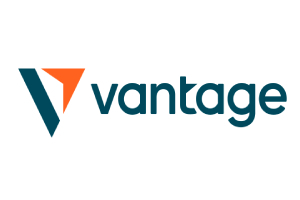One of the most important features the Ethereum Merge aims at incorporating into the network is “sharding.” In a recent blog post, Ethereum explained what sharding is and other important information about the blockchain feature.
What is Sharding?
According to Ethereum, sharding is the process of dividing a database horizontally to spread its load across different hosts. In the context of the Ethereum blockchain, sharding will perform in synergy with Layer 2 rollups by dividing the burden of processing large amounts of data needed by rollups over the entire Ether network. As a result, this feature can help the Ethereum network achieve faster transaction speeds and reduce network congestion. This makes sharding significantly important for Ethereum’s scalability goals.
Key Features of Sharding
- Node Operation is Open to All
Ethereum explains that sharding is an effective method of maintaining decentralization on the blockchain, as the alternative would be to increase the size of the existing database. This option would make Ethereum significantly less accessible for network validators who do not have the immense computing power to store these large data.
However, with sharding, network validators are no longer required to handle the storage of data — which as we have established is tasking — and can instead choose to use data techniques to confirm that the data has been made available across the network. This dramatically reduces the costs and requirements of starring data on Layer 1 by slashing hardware requirements.
- Increased Network Participation
As innovation continues to change operational practices in the blockchain space, sharding will eventually get to the point where users can run Ethereum on a personal laptop or mobile device. As a result, more users can participate or run clients in a sharded environment, which would then improve network security. As the blog post explains it, “This will increase security because the more decentralized the network, the smaller the attack surface area.”
With less constraint on hardware requirements, sharding will make it notably easier for users to run clients without relying on third-party services. Ethereum also advises users who have the means to run multiple clients, this way the network health can be improved through the reduction of points of failure.
Do Shards Require Code Execution?
Speaking at the Bankless podcast, Ethereum CEO Vitalik Buterin proffered three potential options worth discussing to answer the question of code execution:
- State Execution is Not Needed
This means that shards are left without the capacity of handling smart contracts and only serve as data depots.
- Create Some Execution Shards
This option proposes a compromise where shards are not needed to be smarter. As such, Ethereum could simply add this functionality to a few and leave the rest without the feature, which could speed network delivery up.
- Hold Off Until EThereum can Perform Zero Knowledge (ZK) Snarks
The final option suggests the revisitation of ZK snarks. This is a technology with the capacity to introduce “truly” private transactions to the network. That said, ZK snarks are likely to require smarter shards.
You can purchase Lucky Block – Guide, Tips & Insights | Learn 2 Trade here. Buy LBLOCK
- Broker
- Min Deposit
- Score
- Visit Broker
- Award-winning Cryptocurrency trading platform
- $100 minimum deposit,
- FCA & Cysec regulated
- 20% welcome bonus of upto $10,000
- Minimum deposit $100
- Verify your account before the bonus is credited
- Fund Moneta Markets account with a minimum of $250
- Opt in using the form to claim your 50% deposit bonus
Learn to Trade
Never Miss A Trade Again

Signal Notification
Real-time signal notifications whenever a signal is opened, closes or Updated

Get Alerts
Immediate alerts to your email and mobile phone.

Entry Price Levels
Entry price level for every signal Just choose one of our Top Brokers in the list above to get all this free.




